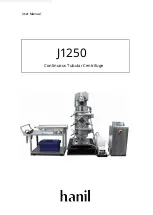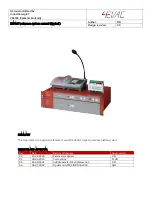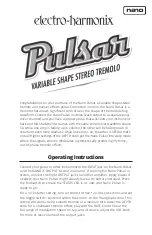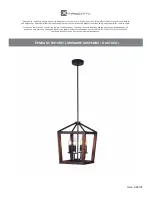
Safety
Operation
WARNING
Operating engine parts, especially the muffler,
become extremely hot. Severe burns can occur
on contact and debris, such as leaves, grass,
brush, etc. can catch fire.
•
Allow engine parts, especially the muffler, to
cool before touching.
•
Remove accumulated debris from muffler and
engine area.
WARNING
Engine exhaust contains carbon monoxide,
which is an odorless deadly poison that can kill
you.
Do Not run engine indoors or in a small confined
area where dangerous carbon monoxide fumes
can collect.
•
Operate only in daylight or good artificial light,
keeping away from holes and hidden hazards.
•
Lightning can cause severe injury or death. If
lightning is seen or thunder is heard in the area,
Do Not operate the machine; seek shelter.
•
Be sure all drives are in neutral and parking brake
is engaged before starting engine.
•
Never operate the machine with damaged guards,
shields, or covers. Always have safety shields,
guards, switches and other devices in place and in
proper working condition.
•
Do Not change the engine governor setting or
overspeed the engine.
•
Park machine on level ground. Stop engine, wait
for all moving parts to stop, remove key and
engage parking brake:
– Before checking, cleaning or working on the
machine.
– After striking a foreign object or abnormal
vibration occurs (inspect the machine for
damage and make repairs before restarting
and operating the machine).
– Before clearing blockages.
– Whenever you leave the machine.
•
Stop engine, wait for all moving parts to stop, and
engage parking brake:
– Before refueling.
WARNING
Hands, feet, hair, clothing, or accessories can
become entangled in rotating parts. Contact
with the rotating parts can cause traumatic
amputation or severe lacerations.
•
Do Not operate the machine without
guards, shields, and safety devices in place
and working properly.
•
Keep hands, feet, hair, jewelry, or clothing
away from rotating parts.
•
NEVER
carry passengers.
DO NOT
operate
the machine when people, especially children, or
pets are in the area.
•
Be alert, slow down and use caution when
making turns. Look behind and to the side before
changing directions.
•
Raise the tines, slow down, and use caution when
crossing surfaces other than grass and when
transporting the machine to and from the work
area.
•
Do Not operate the machine under the influence
of alcohol or drugs.
•
Use extreme care when loading or unloading the
machine into a trailer or truck.
•
Use care when approaching blind corners, shrubs,
trees, or other objects that may obscure vision.
Slope Operation
•
Slopes are a major factor related to loss of control
and rollover accidents, which can result in severe
injury or death. The operator is responsible for
safe slope operation. Operating the machine on
any slope requires extra caution. Before using the
machine on a slope, the operator must:
– Review and understand the slope instructions
in the manual and on the machine.
– Evaluate the site conditions of the day to
determine if the slope is safe for machine
operation. Use common sense and good
judgment when performing this evaluation.
Changes in the terrain, such as moisture, can
quickly affect the operation of the machine
on a slope.
•
Operate across slopes, never up and down. Avoid
operation on excessively steep or wet slopes.
7








































